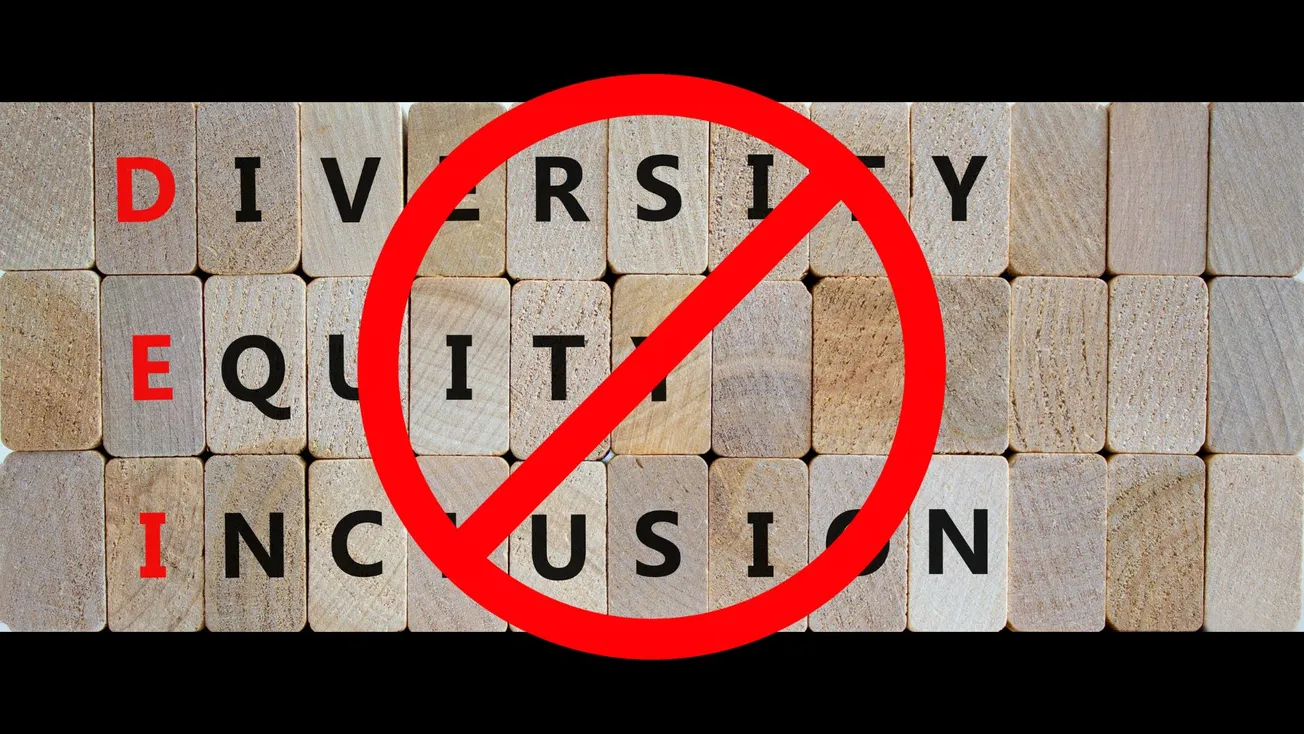Most conservatives I know are not bigots. But many have bought into the anti-DEI rhetoric propagated by conservative media outlets without realizing its origins in white supremacist ideology. Let’s examine that.
The broader conspiracy
Investigative journalists at Vox, The New York Times, and others recently revealed that anti-DEI legislators across the country are pawns in a much greater scheme: A white supremacist movement to end multiculturalism, exposed in manifestos and other writings from organizations like the Claremont Institute. These documents describe not only their war on multiculturalism and all of its sub-genres — CRT, social justice, wokism, plus DEI — but also their legal work to feed sample bill language to legislators in states with conservative super-majorities, creating soldiers for the movement. Internal documents show the creation of talking points and reframing language to create negative connotations, such as describing “diversity-training concepts” as “divisive/discriminatory concepts” (which we see in SB6).
● “Diversity” represents all cultural sub-groups, including gay and trans, white and non-white, differently abled (both physically and mentally), religions, classes, ages, and genders.
Nick Confessore, the journalist who broke the story for The New York Times, explained in an NPR interview that the anti-DEI+ movement is a direct reaction to both the Black Lives Matter and subsequent social justice movements, which they see as having a deleterious societal influence.
The Claremont Institute refers to BLMers as “corrupt, anti-American grifters.” Furthermore, they believe that public universities are training grounds for these activists. Their publications explicitly express a white nationalist, white supremacist (not substantively different) doctrine as well as condemning “radical” feminists and gay/trans activists.
Here’s a sampling of their rhetoric:
- “Our society worships the false and pernicious view that diversity is, somehow, our greatest strength.”
- “Diversity is not a source of strength, but of alienation, hatred, and violence.”
- “White Nationalists aim to end multiculturalism” and aspire to “ethnically homogeneous homelands.”
- DEI makes students “see racism where none exists” and causes “reverse discrimination” against white people.
Propaganda techniques are used extensively, most notably:
- Fear mongering: “Radical DEI is a mortal and existential threat to our American way of life and will cause the fall of our democracy.”
- Doublespeak & false logic, creating confusion: “People who talk about race are the real racists.” “Diversity causes division.”
- Disparaging education: Accusing higher education of “liberal indoctrination,” because critical thinking and freedom of thought threaten white power.
- Race baiting: Proclaiming that “systemic racism doesn’t exist,” to provoke non-whites.
An obsolete vision for America
The antidote to multiculturalism, these groups suggest, is the long-abandoned Melting Pot metaphor, with assimilation at its core. (One of America’s worst experiments with assimilation was Indian schools, which resulted in unimaginable heartbreak, little assimilation – and little diminishing of indigenous peoples’ cultural identity nor pride.)
Parallel to this aspiration is the truly “colorblind” society. This sounds noble, but we are hard-wired to see differences; it’s what we do with the information that counts.
Another utopian ideal (mentioned by Kentucky legislators as well) is “meritocracy,” which condemns “conferring privileges based on race” and instead holds that individuals should be judged based upon their merit, not considering their minority status. The fallacy is that all sub-groups have been given the same opportunities to achieve equal merit with their wealthier white counterparts. If that were true, achievement gaps would not exist.
Decades ago, multicultural educators abandoned the Melting Pot for the “Tossed Salad” metaphor: Each ingredient retains its individuality but contributes to the whole. People want to be accepted and respected for who they are—meaning for the things which make them unique, different.
The catastrophic results of eliminating DEI in education
It’s impossible to overstate the disastrous results we face from this movement, including lost jobs and increased litigiousness. Instead of educators being respected as experts and professionals, they will be scrutinized and micromanaged. Programs intended to help minority students feel included and valued, and which give them the tools to succeed at school, risk elimination.
As mentioned in Part 1, the most basic form of Diversity Training is teaching accurate American History. Anti-DEI legislation ignores the experiences as well as contributions of minority sub-cultures. It chills accurate historical education and the accompanying discourse which attempts not only to make sense of our many challenging episodes, but also to encourage civic participation to improve the lives of minorities.
The greatest injury, however, will be to Kentucky’s reputation. Kentucky will experience the same “Brain Drain” that Florida is experiencing, with educators fleeing, exacerbating our teacher shortage. Instead of coming to Kentucky for a world-class college education, students will seek out colleges elsewhere which are inclusive and will deliver a comprehensive educational experience. Although Governor Beshear has attracted new businesses to set down roots in Kentucky, those companies will have trouble attracting workers, who will view our educational system as backward and anti-intellectual.
Do DEI programs need improvement? Absolutely. But as Kentuckians, we don’t give up and throw out a flawed program; we embrace the challenge and do the hard work to fix it.
We can’t allow legislators — who did not do their homework, who accepted white-supremacist ideology, who do not represent Kentuckians’ live-and-let-live values — to negatively change the face of Kentucky into a backward unwelcoming state. Contact them and tell them to vote No on these bills. And if they instead support the bills, vote them out!
--30--
Note: If you have benefited from a DEI program, tell legislators about it! And if you want to help stop these bills, tell legislators that as well. Contact your legislator now!








